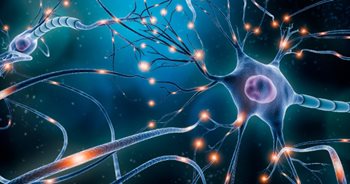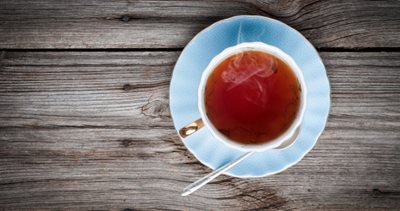
These 11 Natural Compounds Help Build New Brain Cells
Your brain is capable of making new cells, but this capability declines with age. That is, unless you take action to combat it using lifestyle strategies and neuroprotective compounds found in nature
It wasn't long ago that the brain was believed to be incapable of regeneration. The neurons you were born with, it was thought, had to last you a lifetime, and when they were gone or injured, your brain function would suffer. It's now known that your brain is one of many tissues in your body capable of incredible regeneration.
As you age, your brain can continue to build new brain cells, or neurons, in a process known as neurogenesis. Your brain contains about 100 billion brain cells, building new ones rapidly in childhood. The rate of neurogenesis declines as you get older, but it's estimated that the hippocampus brain region, where most brain cells appear to be produced, makes 700 to 1,500 new neurons daily.[i]
By embracing practices known to support neurogenesis, you can ensure that your brain is building as many new neurons as possible, keeping your brain function strong into old age.
11 Natural Compounds to Build New Brain Cells
Regular exercise, sleep, stress management, challenging your mind by learning new things and maintaining strong social ties all play a part in this process, but there are also natural compounds known to support neurogenesis.
1. Astragalus
Valued in traditional Chinese medicine for millennia, astragalus (Astragalus membranaceus) is an adaptogenic herb known to protect the body from physical, mental and emotional stress.[ii] Radix Astragali (RA), a specific variety of astragalus, known as "Huangqi" in Chinese,[iii] contains the active ingredient astragaloside IV (AS-IV), which has antioxidant, anti-inflammatory and anti-apoptotic properties that protect against brain injury.
In animal studies, astragaloside IV was found to enhance neurogenesis, angiogenesis and neurological functional recovery,[iv] as well as stimulate hippocampal neurogenesis after stroke, potentially helping the brain to remodel and repair itself.[v]
2. Ginseng
Ginseng (Panax ginseng) contains ginsenosides that have neuroprotective properties. In addition to being antioxidative and anti-inflammatory, ginsenosides, particularly ginsenoside-Rb1 and ginsenoside Rd,[vi] promote neurogenesis.[vii]
3. Alpha-Lipoic Acid
Alpha-lipoic acid, known for its antioxidant properties, is commonly used for neurological disorders, as it's known to cross the blood-brain barrier and positively influence multiple cellular processes. It also has neuroprotective and neurorestorative effects, especially if administered immediately after ischemic injury. In a study of rats, alpha-lipoic acid enhanced neurogenesis, promoting functional recovery after stroke.[viii]
4. Curcumin
Curcumin, an active ingredient in the spice turmeric, promotes brain health by increasing, or at least stabilizing, neurogenesis in adults.[ix] Even after traumatic brain injury, curcumin alleviated neuroinflammation, improved spatial memory and enhanced hippocampal neurogenesis in rats.[x]
This powerful compound is also protective against neurotoxicants like bisphenol A (BPA), an endocrine-disrupting chemical known to impair the process of neurogenesis in the hippocampus, particularly in utero. In developing rats, curcumin reversed much of BPA's neurotoxic effects, enhancing neurogenesis and providing neuroprotection.[xi]
Moreover, in adult mice, curcumin significantly increased the number of newly generated cells in the hippocampus, leading researchers to explain, "Our findings suggest that curcumin can stimulate developmental and adult hippocampal neurogenesis, and a biological activity that may enhance neural plasticity and repair."[xii]
5. Resveratrol
Resveratrol, a stilbene found in grapes, cocoa, wine and berries, induces neurogenesis.[xiii] Among rats exposed to lead, resveratrol reduced cognitive damage and promoted neurogenesis by regulating the sirtuin (SIRT1) pathway,[xiv] which enhances longevity and mitochondria function for disease prevention.
6. Astaxanthin
Astaxanthin is a carotenoid that's been extensively investigated for its role in heart disease and metabolic syndrome, which share the hallmarks of oxidative stress and inflammation that are also contributive to neural dysfunction. Astaxanthin is also known to have a neuroprotective effect, with research suggesting it may also increase neurogenesis and neural plasticity, which refers to the nervous system's ability to modify itself in response to experiences and injury.[xv]
Not only may astaxanthin increase stem cell proliferation in the hippocampus, which may improve spatial memory, but consuming it may also increase brain-derived neurotrophic factor (BDNF), which plays a role in neural development, growth and function.[xvi]
Research published in Proceedings of the National Academy of Sciences also revealed that astaxanthin has "beneficial effects on hippocampal neurogenesis and memory function."[xvii]
7. Gotu Kola
Gotu kola (Centella asiatica), also known as Indian pennywort, is a perennial plant that stimulates collagen synthesis and promotes wound healing.[xviii] However, it also contains asiatic acid, a triterpenoid that inhibits oxidative stress. In an animal model, the compound was found to counteract the down-regulation of neurogenesis that's caused by chemotherapy drugs.[xix]
Asiatic acid has also been shown to improve learning and memory in an animal model, and the benefit was linked to an increase in hippocampal neurogenesis.[xx]
8. Bacopa
Bacopa, a perennial plant that's popular in traditional Ayurvedic medicine, is beneficial for a variety of brain disorders, including Alzheimer's disease, stroke, epilepsy and depression. Among its neuroprotective properties is an ability to modulate neurogenesis along with neuronal plasticity.[xxi]
One study of bacopa extract on rats revealed that the compound exerted neuroprotective effects, potentially by promoting hippocampal neurogenesis via protection against oxidative stress and an increase in BDNF.[xxii]
9. Ginkgo Biloba
Ginkgo contains compounds that favorably influence BDNF, helping to regulate the growth and survival of brain cells. Ginkgo biloba extract (GBE) has been found to promote the survival of neural stem cells as well as encourage neural stem cell differentiation, with researchers noting, "Moreover, neurite outgrowth is also dramatically increased upon GBE treatment."[xxiii]
GBE has been found to significantly increase neurogenesis in the hippocampus,[xxiv] while also increasing the level of BDNF and encouraging the differentiation of stem cells into nerve cells.[xxv]
10. Sulforaphane
Sulforaphane (SFN), found in sulfur-rich vegetables like broccoli and broccoli sprouts, epigenetically enhances BDNF, which supports the survival of existing neurons and encourages the growth of new neurons.[xxvi] According to a review published in the journal Brain Circulation:[xxvii]
"SFN increases neuronal expression of brain-derived neurotrophic factor, which promotes neuron generation and upregulates Wnt signaling in neural stem cells, which then increases stem cell proliferation and their differentiation into neurons."
11. Melatonin
In an animal study, the hormone melatonin not only acted as an antidepressant, improving the behavior of stressed mice, but also increased neurogenesis in the animals.[xxviii]
Melatonin also increased cell proliferation in the hippocampus after three, six and nine months of treatment in another study on mice, delaying the typical decline in neurogenesis that occurs with age. In fact, the researchers noted in Neuroscience Letters, "Together, the data support melatonin as one of the positive endogenous regulators of neurogenesis during aging."[xxix]
This is only a sampling of the powerful natural compounds known to support the growth of new neurons in your brain. You can get access to 68 different substances that have been researched for neurogenesis by visiting GreenMedInfo.com's neurogenesis database.
© [12-21-2022] GreenMedInfo LLC. This work is reproduced and distributed with the permission of GreenMedInfo LLC. Want to learn more from GreenMedInfo? Sign up for the newsletter here //www.greenmedinfo.com/greenmed/newsletter.
------------------------------------------------------------------------------------------------
Pedagogy Education offers many courses for nurses wanting to learn more about holistic nursing!
- Thyroid Gland Overview
- Hashimoto's Thyroiditis From a Western Medicine and Holistic Perspective
- Essential Oils for Health
- Healing the Healer
- Probiotics
- CBD 101: An Introductory Course
- A Holistic Approach to Gut Health
All of the above courses can be purchased through our Holistic Continuing Education Package at a discounted rate of 10% off!
Pedagogy's courses are available for purchase by the individual or facility. For individuals, register with us to create your username and password, click on the course title of interest and then click the Buy Now button. For a complete listing of all our online continuing education courses, including the largest selection of infusion continuing education courses offered online, click here!
For organizations that would like to purchase education for their entire staff, email sales@pedagogyeducation.com and let us know the course(s) of interest and how many staff members you need to provide education for, and we will be happy to send you a price quote.

